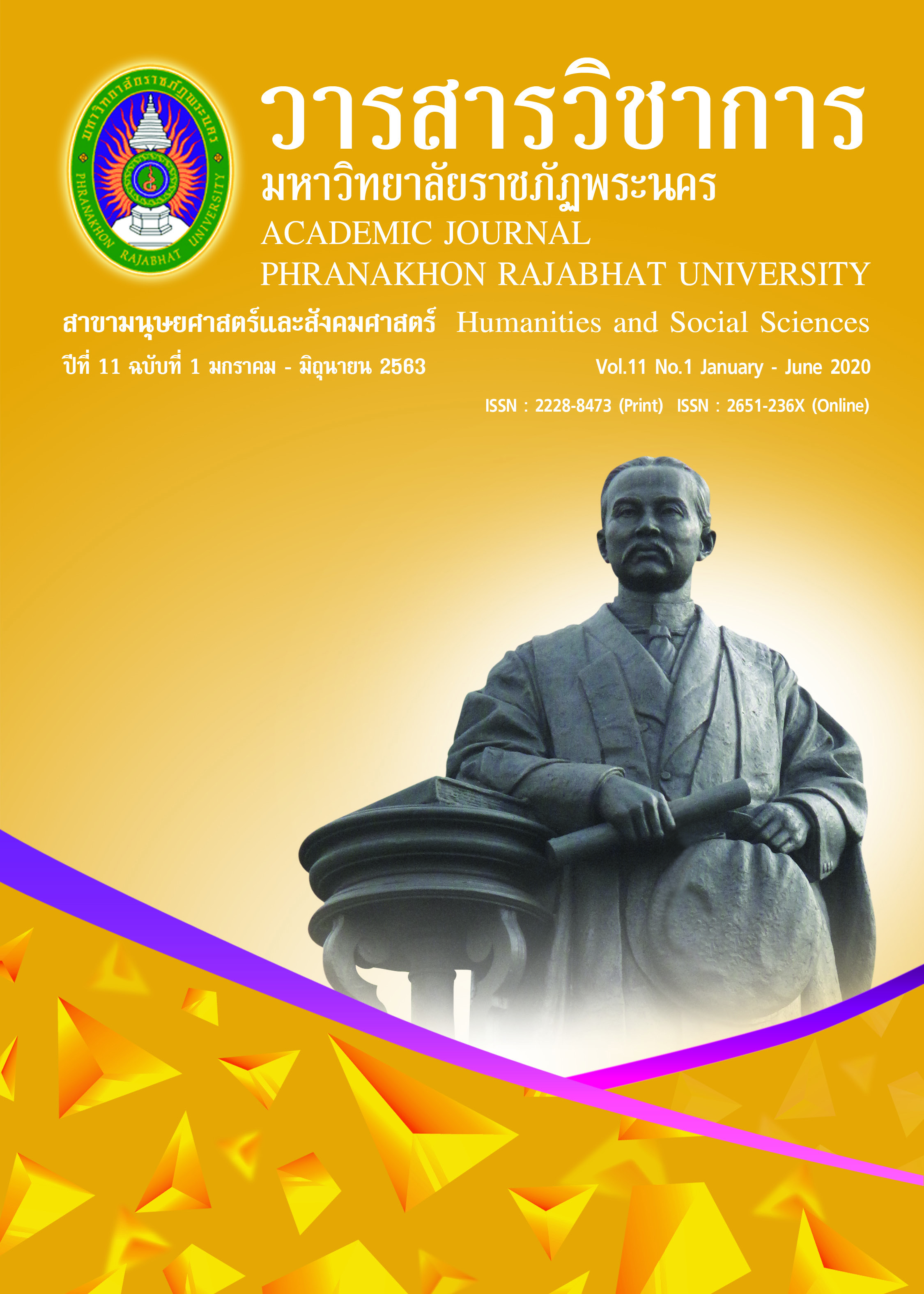THE PRIORITY NEEDS OF DEVELOPING THAI TEACHERS IN SINGAPORE INTERNATIONAL SCHOOL OF BANGKOK BASED ON EDUCATIONAL TECHNOLOGY STANDARDS FOR TEACHERS
Keywords:
Priority Needs, Teacher development, Technology standards for teachersAbstract
The purpose of this descriptive research was to study the priority needs of developing Thai teachers in Singapore International School of Bangkok based on educational technology standards for educators. The population was Singapore International School of Bangkok and campuses under the Office of the Private Education Commission. The research informants consisted of 5 School directors and 32 Thai teachers. There were totally 37 informants. The research instrument used was a rating scaled questionnaire. The data were analyzed by frequency distribution, percentage, mean, standard deviation, and Modified Priority Needs Index (PNIModified). The research results were the priority needs of developing Thai teachers in Singapore International School of Bangkok based on educational technology standards for educators sorted from highest to lowest were the first priority need index was the learners (PNIModified = 0.243), the second priority need index was the leaders(PNIModified = 0.234), and the last priority need index was collaborators (PNIModified = 0.226).
References
Bureau of Academic Affairs and Educational Standards. (2010). Approaches for organizing student development activities based on the Basic Educational Core
Curriculum B.E.2551 (2008). Bangkok: Agricultural Co-operative Federation of Thailand printing.
Chantakul, P. (2016). A Model Enhancing Teacher Competency in Using Information and Communication Technology for Learning Management of the 21st Century. Ph.D program in Educational Administration. Faculty of Education, Naresuan University. (in Thai)
International Society for Technology in Education. (2017). ISTE Standards for educators. Retrieved January 8, 2019, from https://www.iste.org/standards/for-educators.
Jeewattana, S. (2012). Constructing ICT Leadership Indicators for Personnel in Basic Education Institutions. Ph.D program in Leadership for Professional Development. Graduate school, Buriram Rajabhat University. (in Thai)
Krobthong, T. (2017). Leadership indicators of information technology teachers in the basic education schools. Suthiparithat journal, 31(99), 147-159. (in Thai)
Ministry of Education. (2010). National Education Act B.E. 2542 (1999) and Amendments (Second National Education Act B.E. 2545 (2002). Bangkok: Kurusapa Printing Ladphrao.
Ministry of Education Singapore. (2014). Syllabus cyber wellness secondary. Retrieved February 2, 2019, from https://www.moe.gov.sg/docs/default-source/document/education/syllabuses/character-citizenship-education/files/2014-cyber-wellness-(secondary).pdf
Ministry of Information and Communication Technology. (2011). ICT Policy Framework (2011-2020). Bangkok: Ministry of Information and Communication Technology.
Naksukpan, W. (2014). Development of an Educational Cooperation Model for Thai Secondary Schools’ Cooperation with Other ASEAN Secondary Schools. Ph.D program in Educational Management. College of Education Sciences, Dhurakij Pundit University. (in Thai)
Pasatcha, P. (2015). The Competency Development of Teacher Leadership on Information Technology and Communication in Learning Management the 21st Century. Ph.D program in Educational Leadership and Human Resource Development. Faculty of Education, Chiang Mai University. (in Thai)
Ribble, M.S. & Bailey, G.D. (2015). Digital citizenship: Focus questions for implementation. Learning & Leading with technology, 32(2), 12-15.
Trust, T. (2018). ISTE Standards for educators: From teaching with technology to using technology to empower learners. Journal of Digital Learning in Teacher Education. Retrieved March 15, 2019, from https://www.tandfonline.com/doi/full/10.1080/21532974.2017.1398980
Downloads
Published
How to Cite
Issue
Section
License
"บทความวิชาการในวารสารฉบับนี้ ถือเป็นความรับผิดชอบของผู้เขียนเท่านั้น"
สงวนลิขสิทธิ์ตามพระราชบัญญัติลิขสิทธิ์




